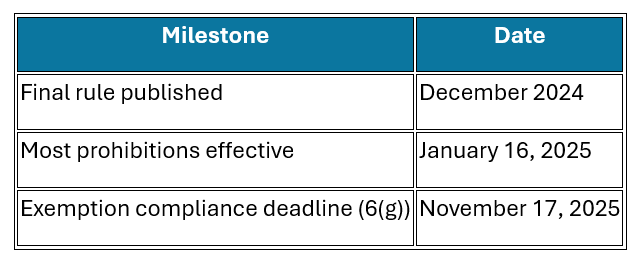The U.S. Environmental Protection Agency (EPA) has finalized a sweeping ban on trichloroethylene (TCE), a widely used but hazardous industrial solvent, under the Toxic Substances Control Act (TSCA).
Published in December 2024, the rule bans 52 of 54 identified TCE use conditions, citing unreasonable risks to human health.
Why TCE Is Banned?
The final risk evaluation concluded that TCE exposure can lead to:
• Cancer: Liver, kidney, and non-Hodgkin lymphoma
• Neurotoxicity and organ damage
• Immune system suppression
• Reproductive and developmental toxicity
Exposure risks include inhalation and dermal contact across occupational and consumer settings.
Scope of the Ban
The rule applies to:
• Manufacturing & processing
• Industrial & commercial uses
• Consumer products
⚠️ Exemptions: Only two uses remain permitted under TSCA Section 6(g), including law enforcement pepper spray, with strict conditions.
Implementation Timeline

|
Who’s Affected?
• Manufacturers and importers of TCE
• Processors and end-users in industry
• EHS and compliance teams
Next Steps for Businesses
✅ Audit Operations – Identify and eliminate TCE use
✅ Substitute Safer Alternatives – Align with the ban
✅ Implement WCPP – Required for limited exempted uses
✅ Monitor Legal Updates – For any timeline changes
This ban is a major public health protection step under TSCA, highlighting EPA's increased scrutiny of high-risk chemicals.
Reference: EPA TCE Final Rule & Risk Management
Reach out to our regulation experts on chemical and product regulatory compliances

